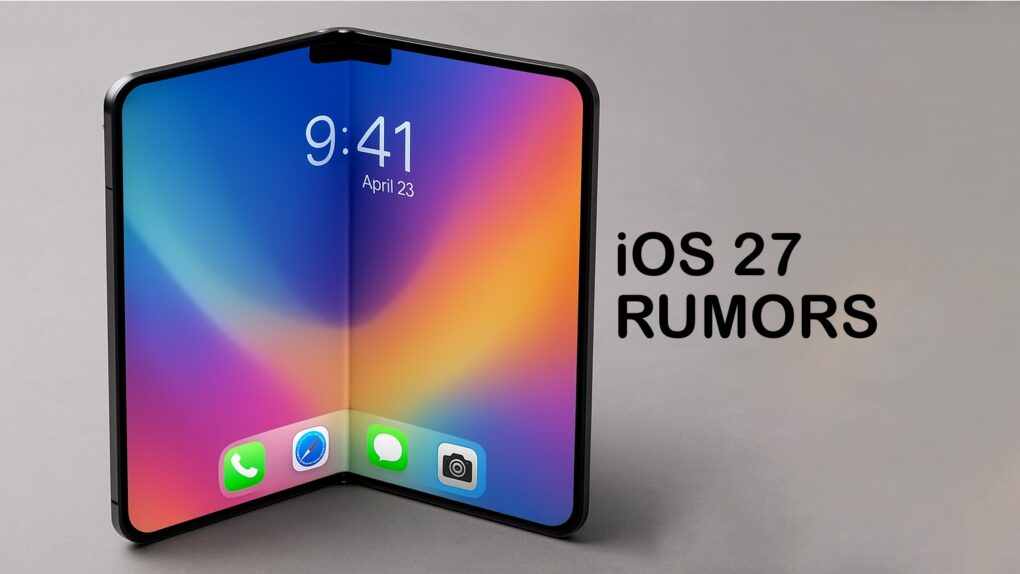With a foldable iPhone widely rumored for 2026, the next version of iOS will concentrate on a user interface revamp needed for the new type of device, according to a noted tipster. iOS 27 will apparently need to handle two screens with different resolutions, for example.
iOS 27: It’s all about the foldable iPhone
Apple held off making a foldable iPhone until technology emerged necessary to avoid the flaws of earlier foldables. Most notably, sources indicate that the screen will not be marred by a crease.
But hardware is only half of what’s needed.Software is equally important, and the current iOS version is not at all suitable for a foldable iPhone. Behind the scenes, Apple is reportedly taking care of that.
“As part of the development of iOS 27 — which formally kicks off soon — Apple will prioritize software features tailored specifically to this new form factor,” noted Bloomberg’s Mark Gurman in Sunday’s Power On newsletter.
Gurman has some of the most reliable sources on upcoming Apple products — many of them employees of the iPhone-maker willing to share insider information.
A dramatic shift
While Gurman had no specifics about iOS 27 changes to share, knowing some of what’s required doesn’t take insider information.
Previous reports indicate Apple picked a book-style design, not a flip-phone design. And it’ll supposedly also have a large external display, so it’ll be possible to use without opening the clamshell. Apple’s operating system will need significant modifications to be able to handle users shifting between the two screens.
Bit of a risk, actually
There’s little room for doubt that a foldable iPhone is on Apple’s docket for 2026 — there are too many leaks from reliable sources. But it’s expected to be a niche product. With a price around $2,000, it’ll simply be too expensive to go mainstream.
Which means Apple supposedly intends to put a majority of the effort on iOS 27 into features that few of its customers will benefit from. That could frustrate users of the iPhone 18 series, also expected in 2026.
Still, the company’s long-delayed artificial intelligence efforts — dubbed Apple Intelligence — could finally really start to bear fruit in 2026, which could satisfy users not interested in a folding iPhone.


